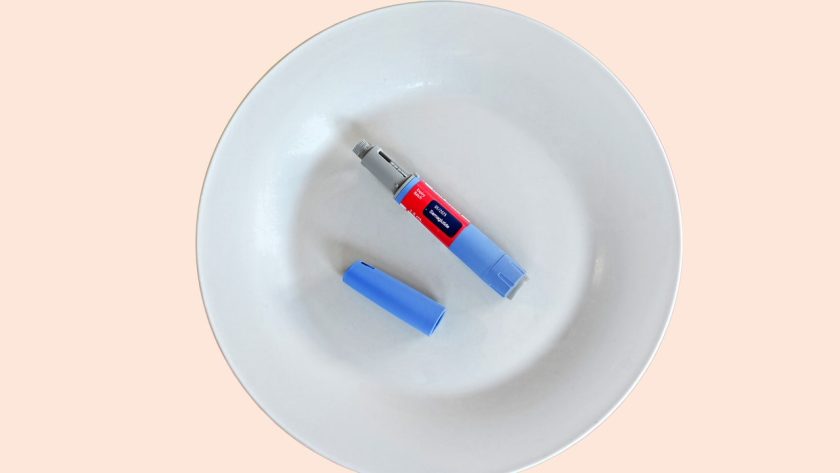I am so, so sick of Ozempic. Not necessarily the drug itself—which is one of a family of brand-name versions of the antidiabetic medication semaglutide and was approved by the FDA in 2021, under the brand name Wegovy, for the purpose of weight management in adults with obesity who had at least one comorbidity. What I’m really sick of is the discourse around Ozempic, Wegovy, Mounjaro, and other weight-loss injectables, which have taken Hollywood by storm and found new life on TikTok (where, depressingly enough, the #Ozempic hashtag has more than a billion posts associated with it).
I don’t know exactly why the Ozempic discourse drives me so crazy. I’ve spent years coming to terms with my own identity as a fat person and trying to internalize the idea that nobody gets to have an opinion on my body—nor should I have an opinion on anyone else’s. Still, when I see celebrities like Amy Schumer—whose weight has been as obsessively discussed as anything else in her life or career, whether she liked it or not—speak openly about using Ozempic, the fatphobic part of my brain I thought I’d excised long ago panics and whispers: Should I be doing it too?
Realistically, joining the Ozempic craze would hardly be so simple. First of all, the drug tends to run at about $900 for a monthly supply (which, together with my rent, would definitely help me lose weight, as I’d no longer be able to afford food); then there’s the fact that the last time I saw my doctor, she specifically told me that weight-loss injectables aren’t an ideal fit for someone with my history of disordered eating and weight fluctuation. I’ve also spent a long time reading the work of writers like Virgie Tovar, Virginia Sole-Smith, and Sabrina Strings, all of whom take care to place our society’s obsession with thinness in its appropriate cultural context and remind their readers that there is no inherent value in working overtime to make your body look a certain way.
Some days it feels like I’m wrestling with bodily anxiety as much as I ever did—but I know that’s not truly the case, largely thanks to all the reading I’ve done since 2019, when I first began to gain a significant amount of weight. Five or six years ago, though—when I was in my early 20s and still thin, not yet out as queer, and struggling to make my life take any sort of shape beyond the confines of my then all-consuming binge-eating disorder and depression—I know with a sad kind of certainty that I would have done almost anything to get my hands on Ozempic, or any other drug that promised to make me disappear, no matter how expensive it was or what my doctor said to try to dissuade me.



